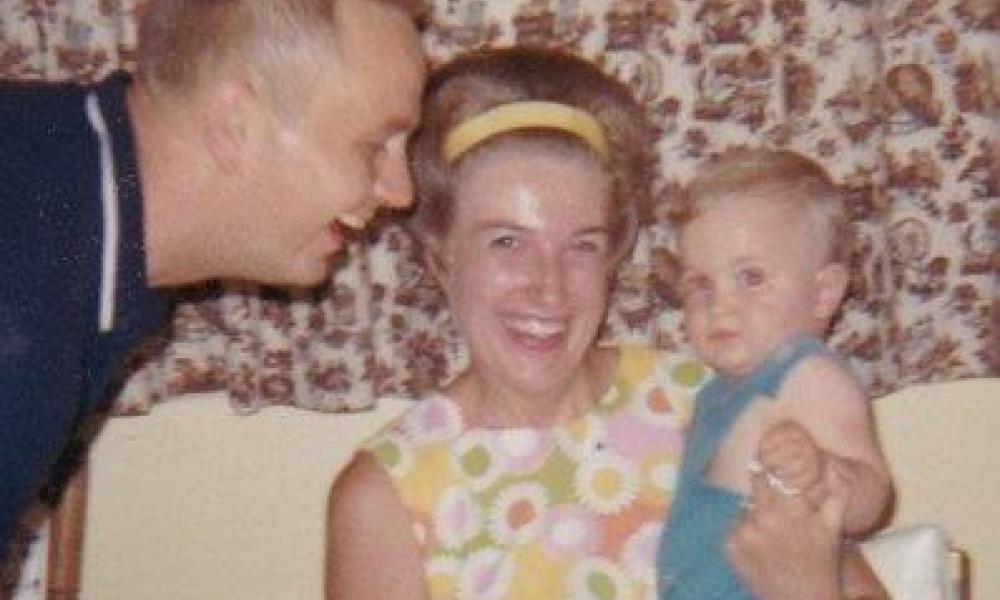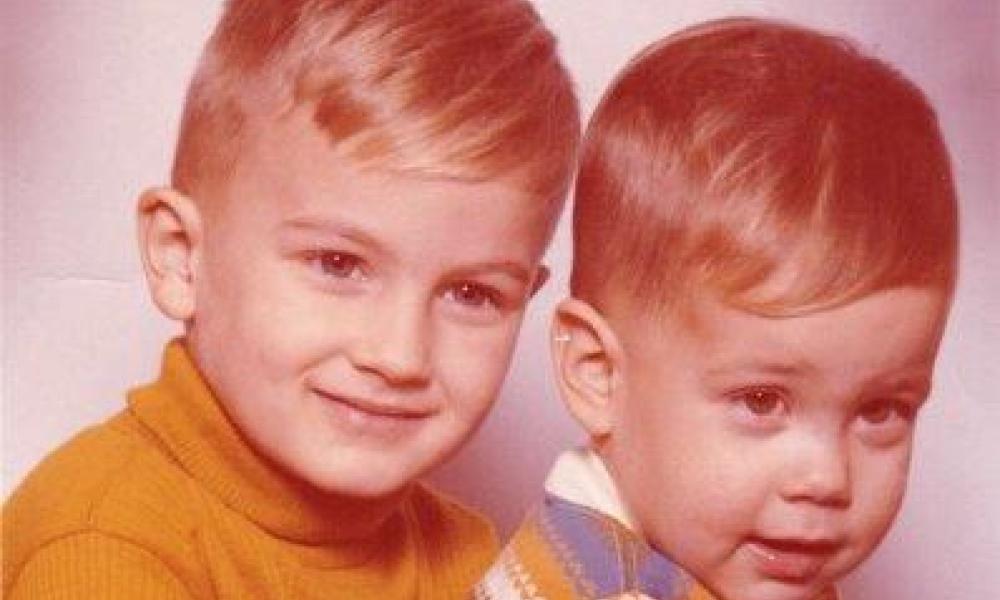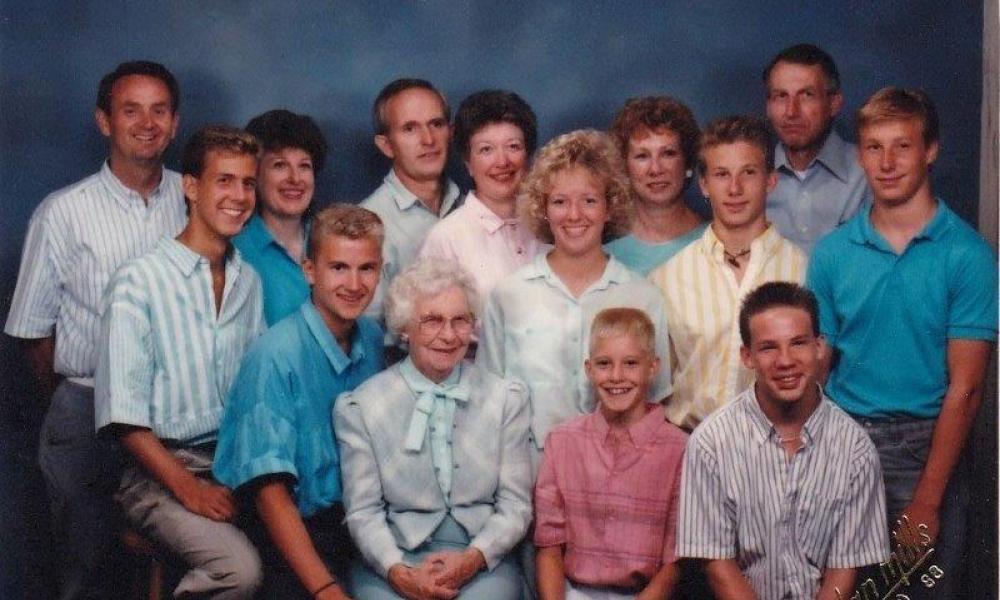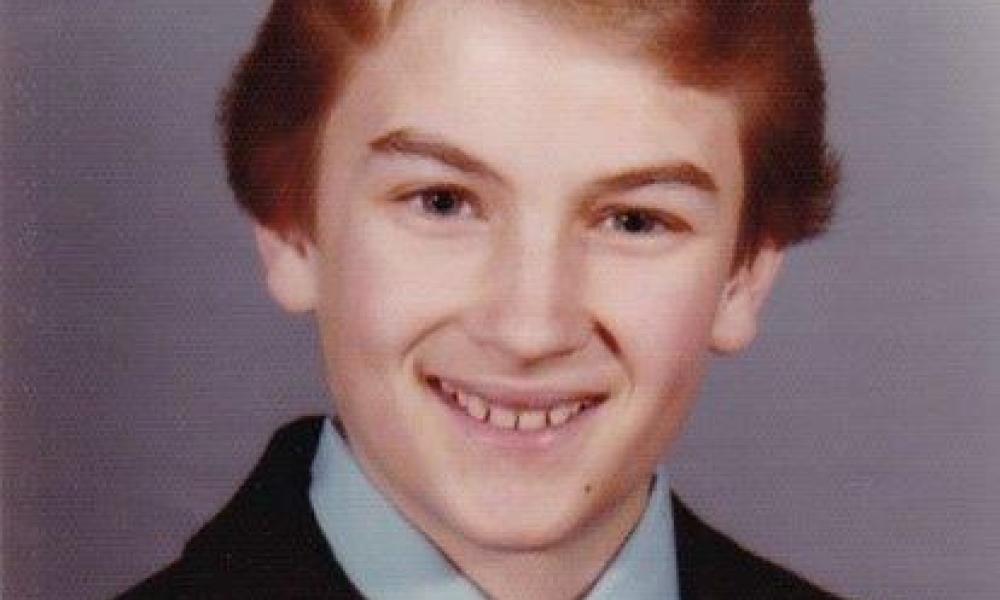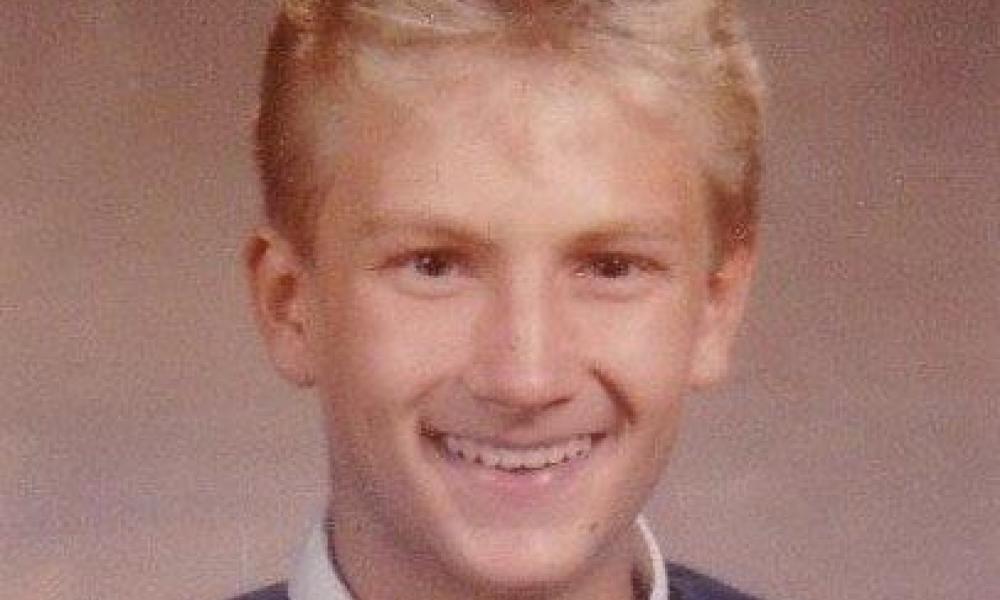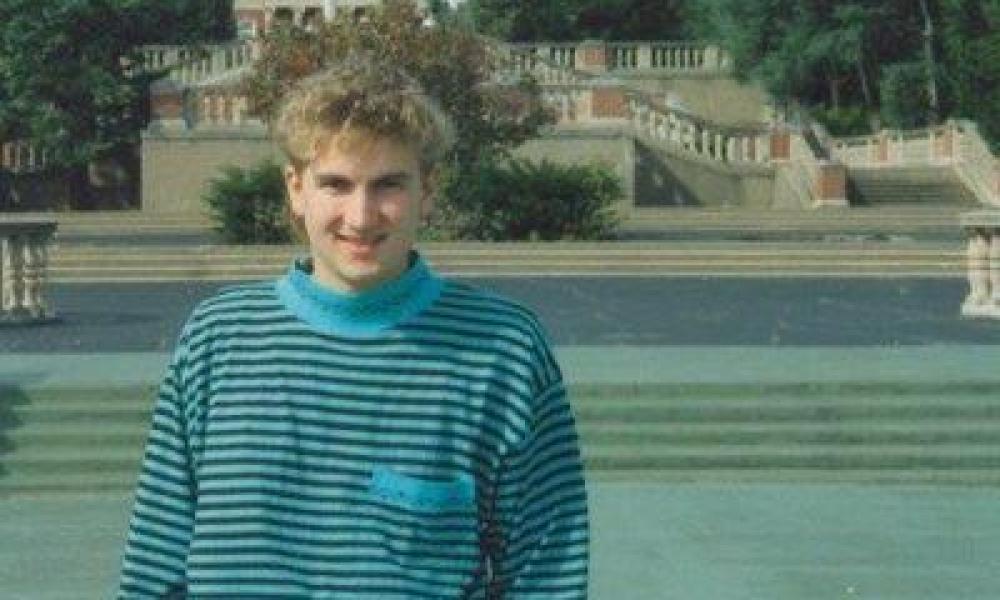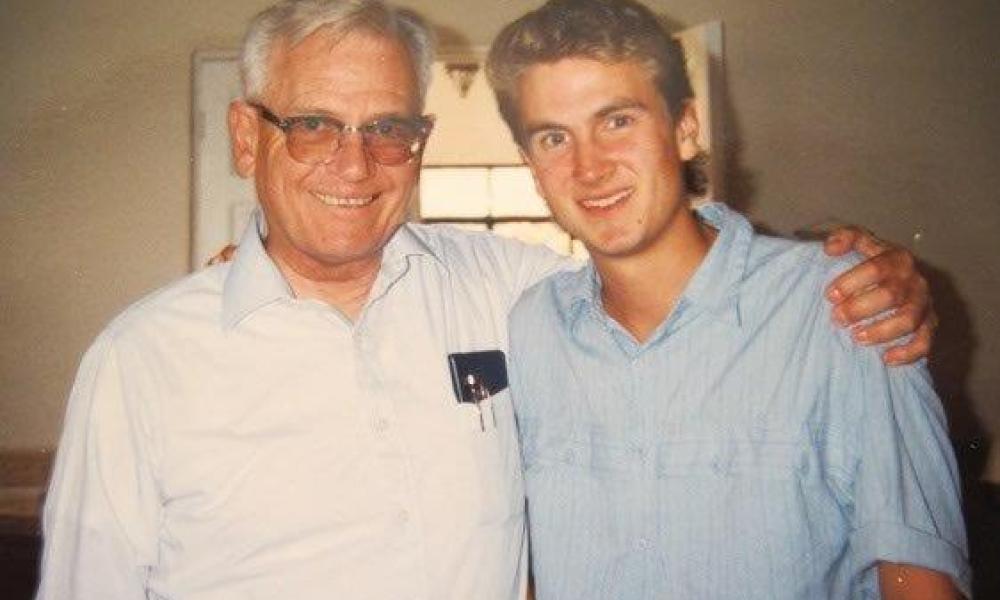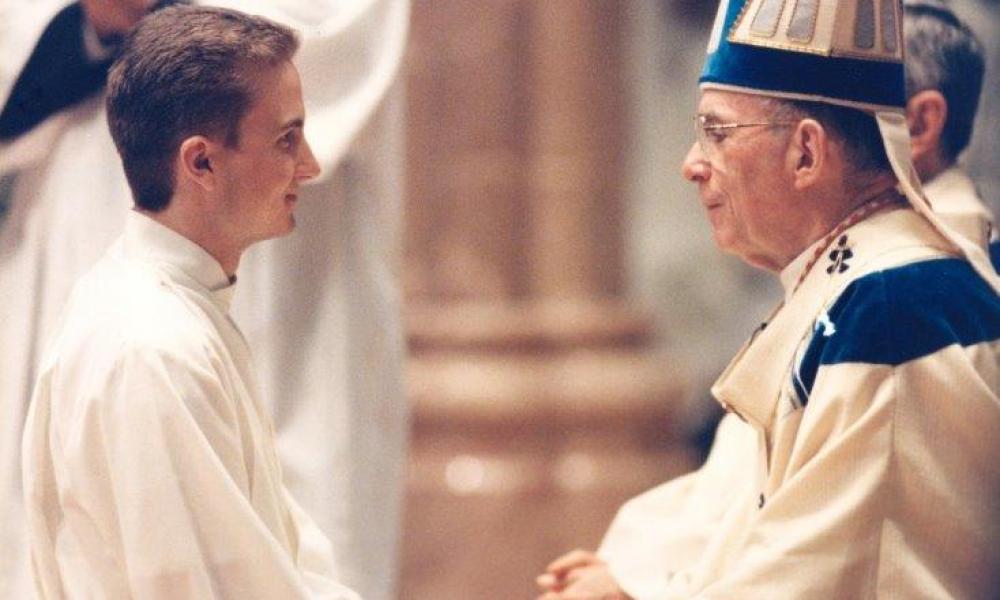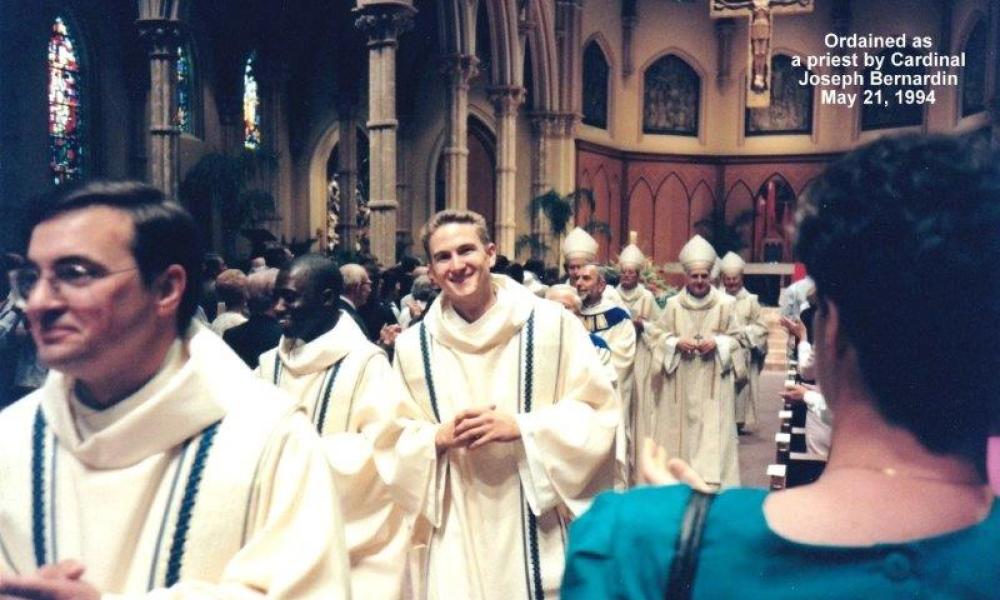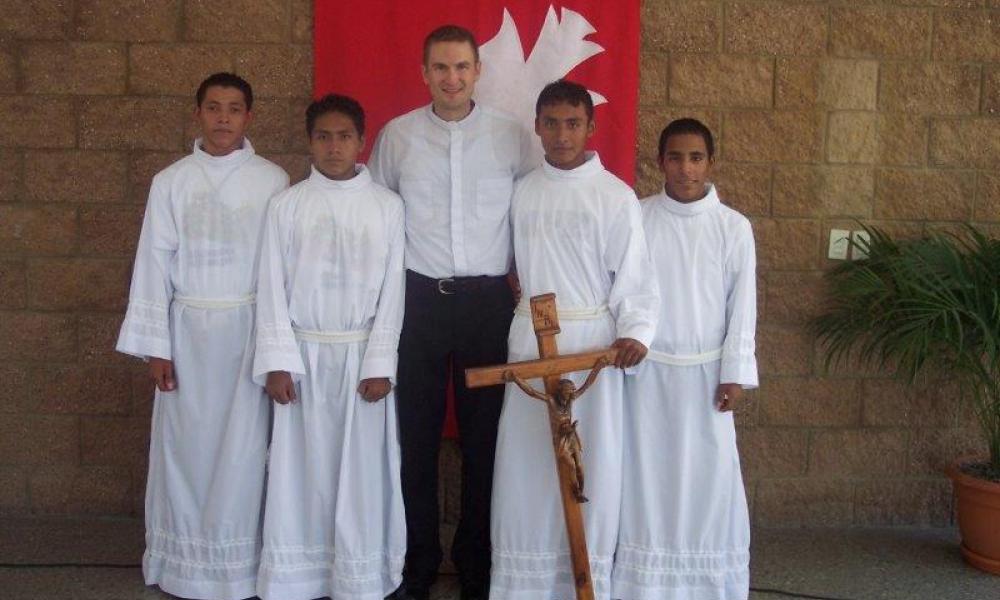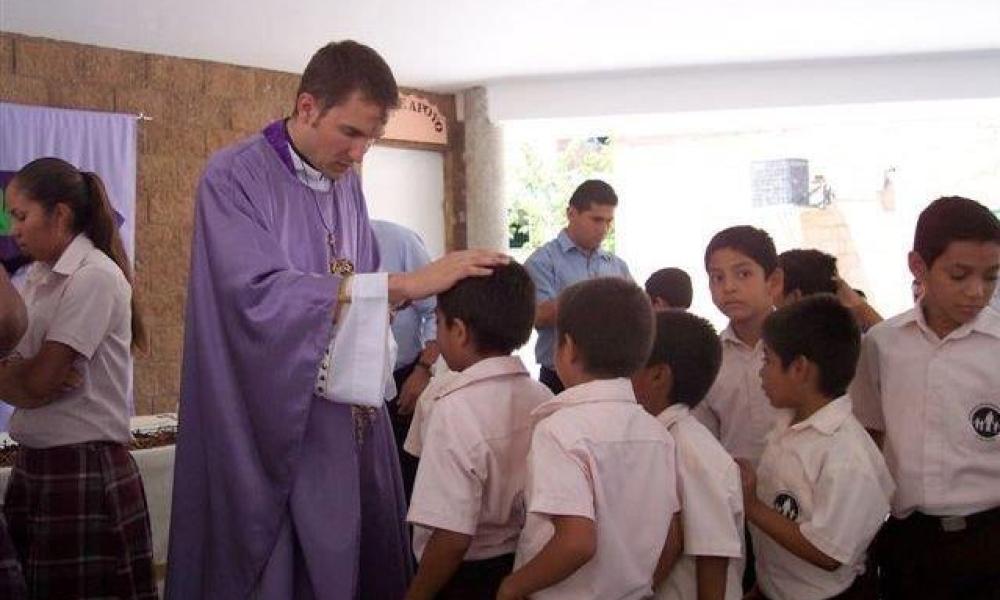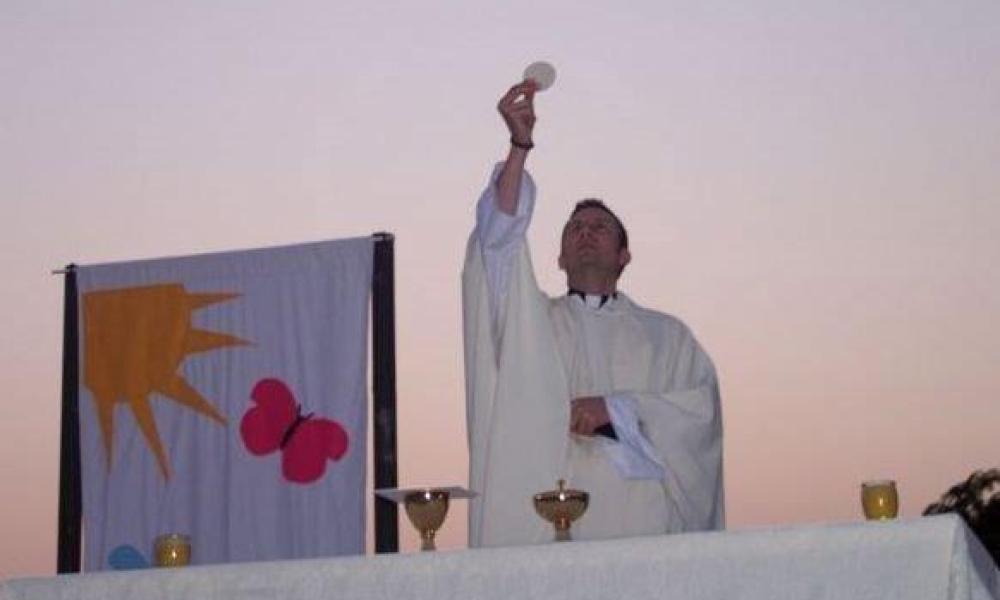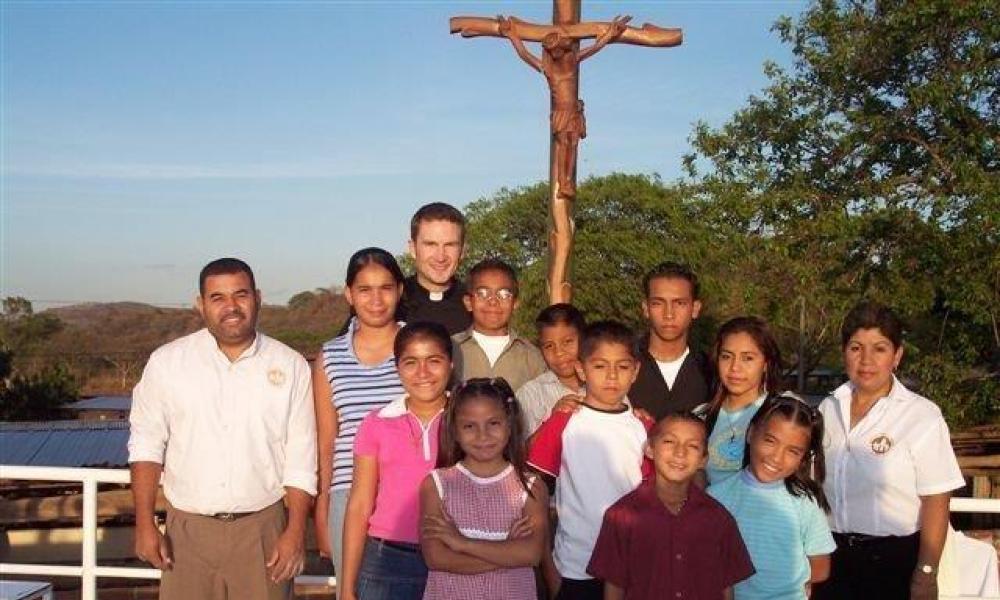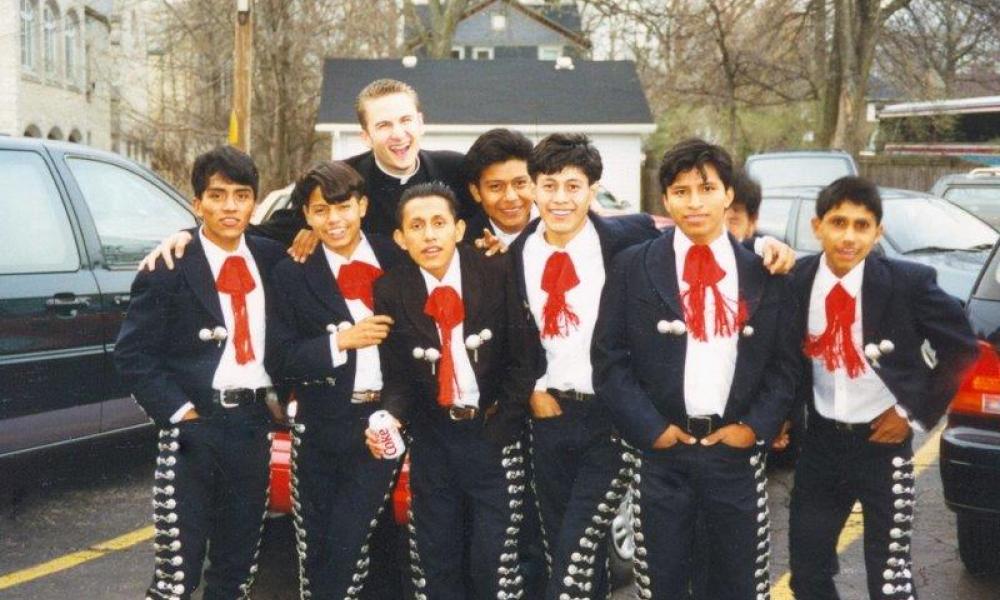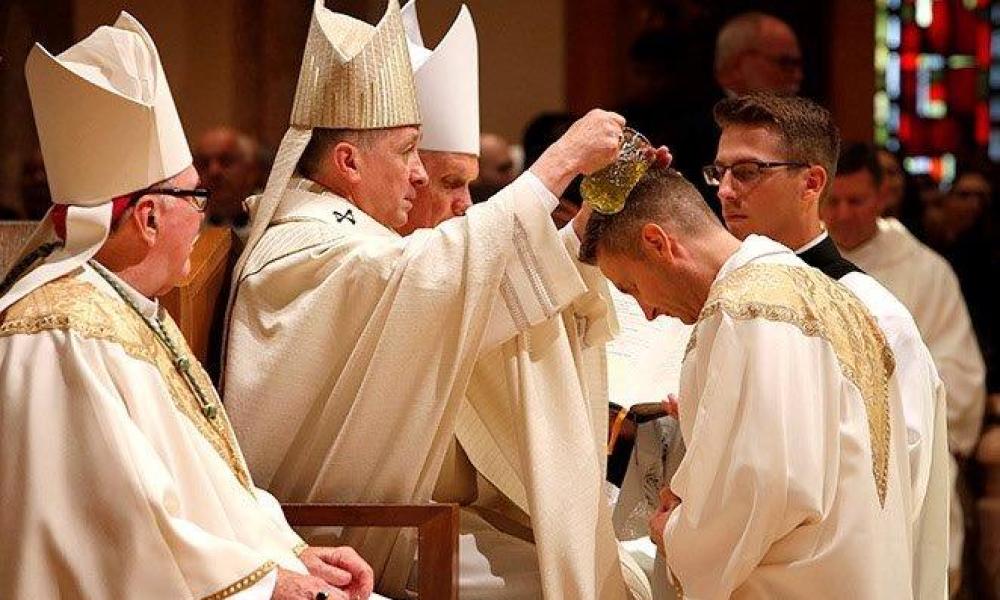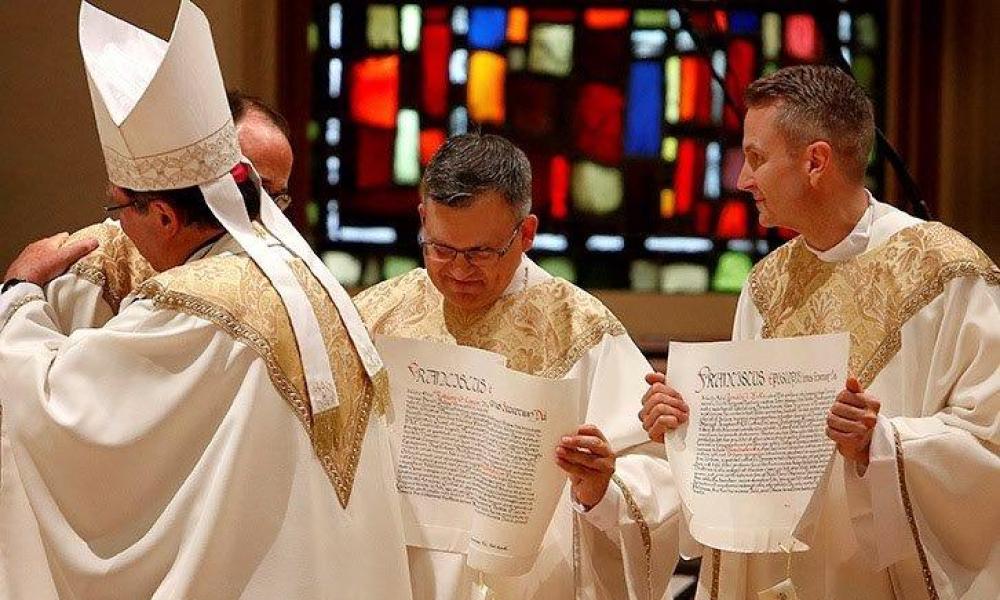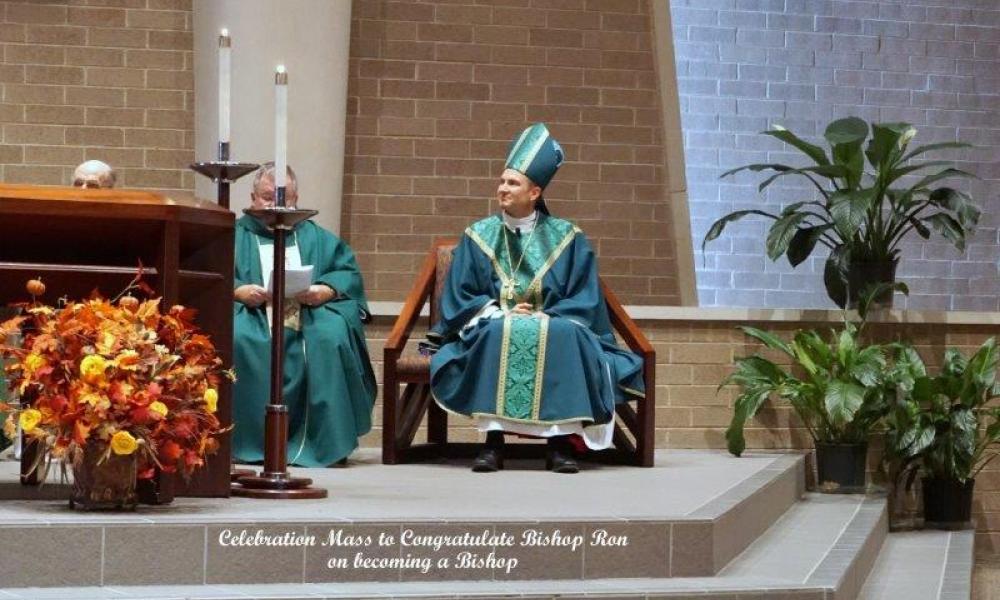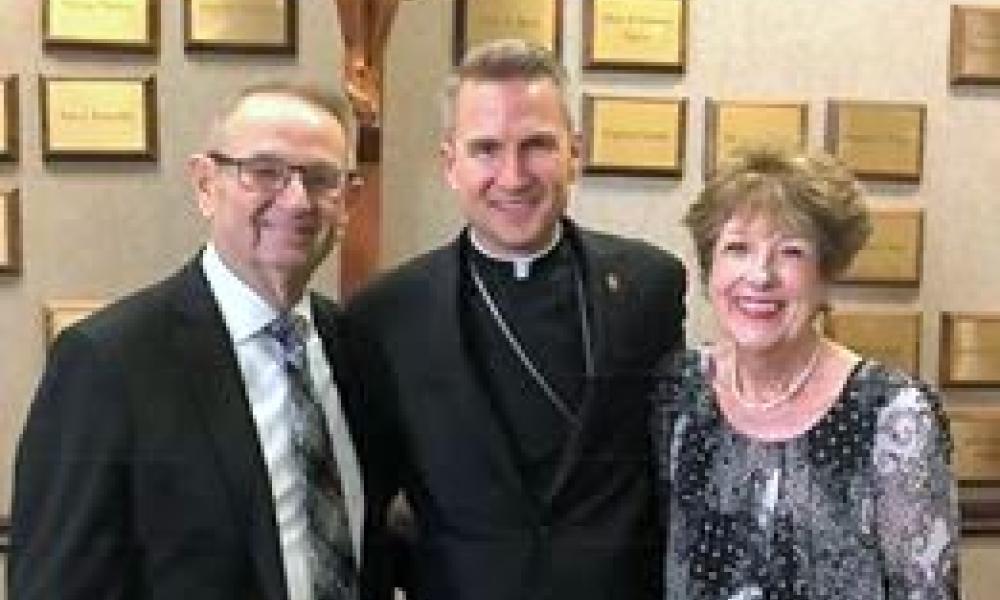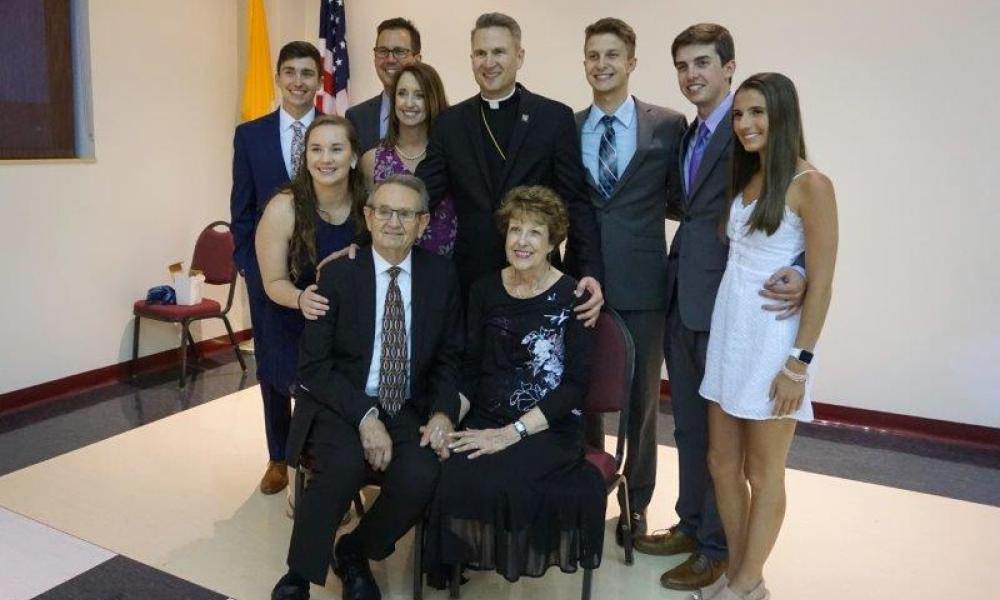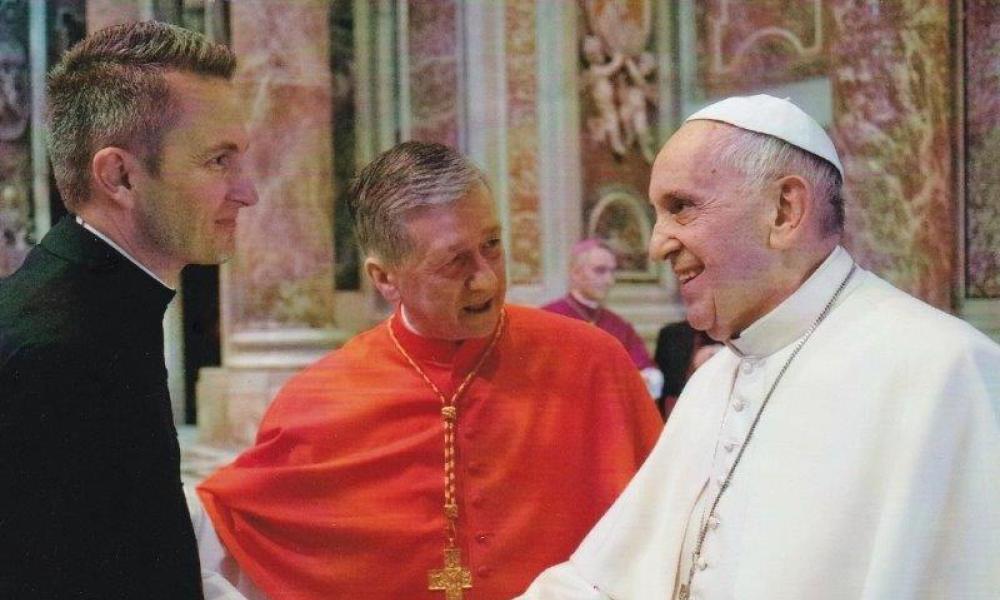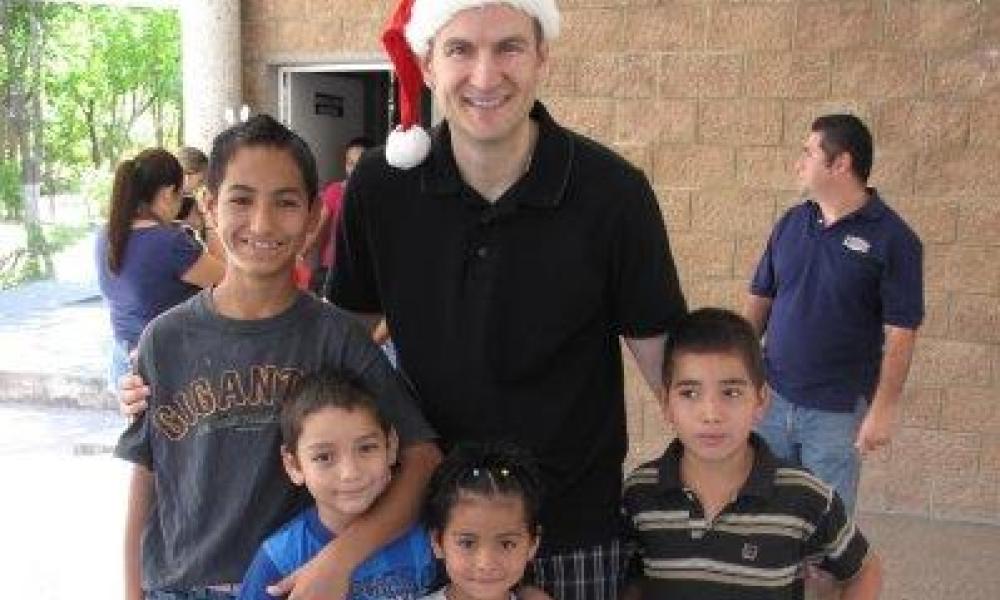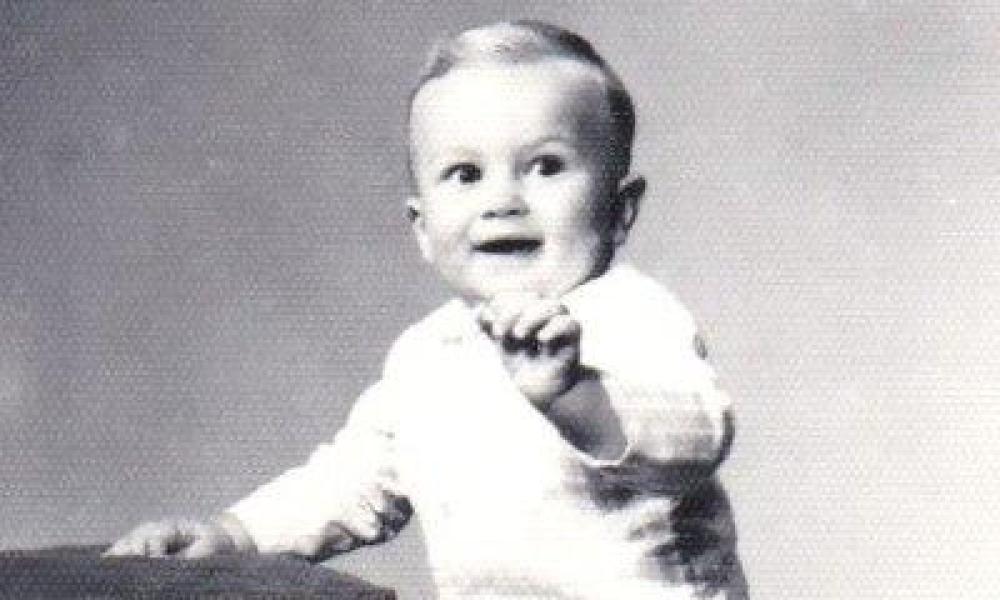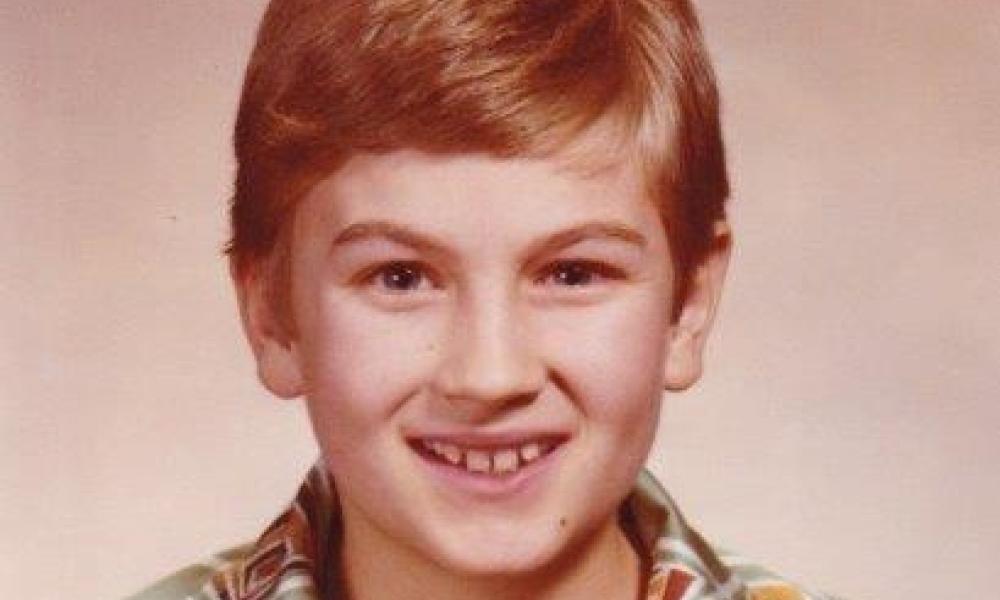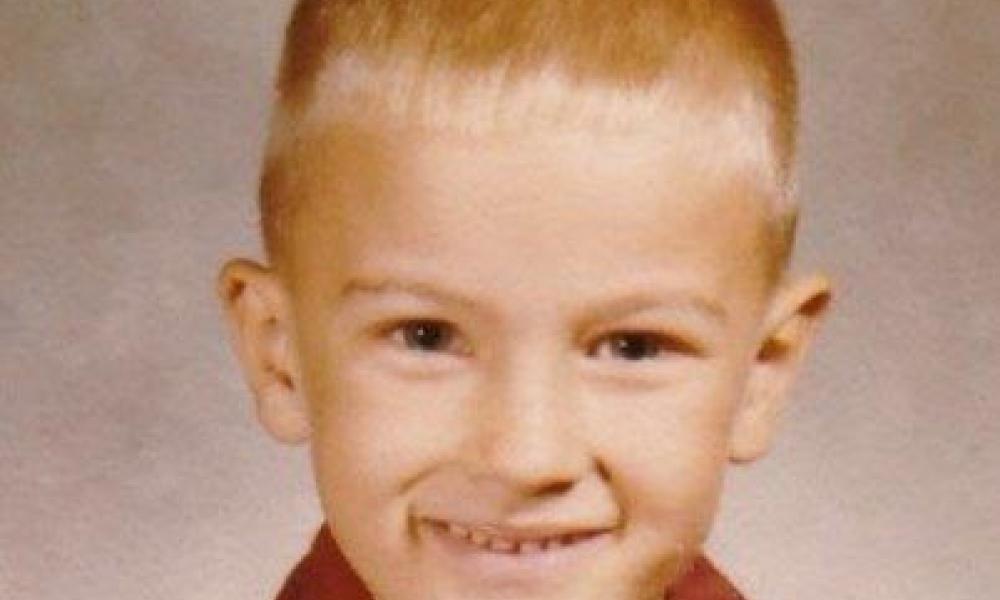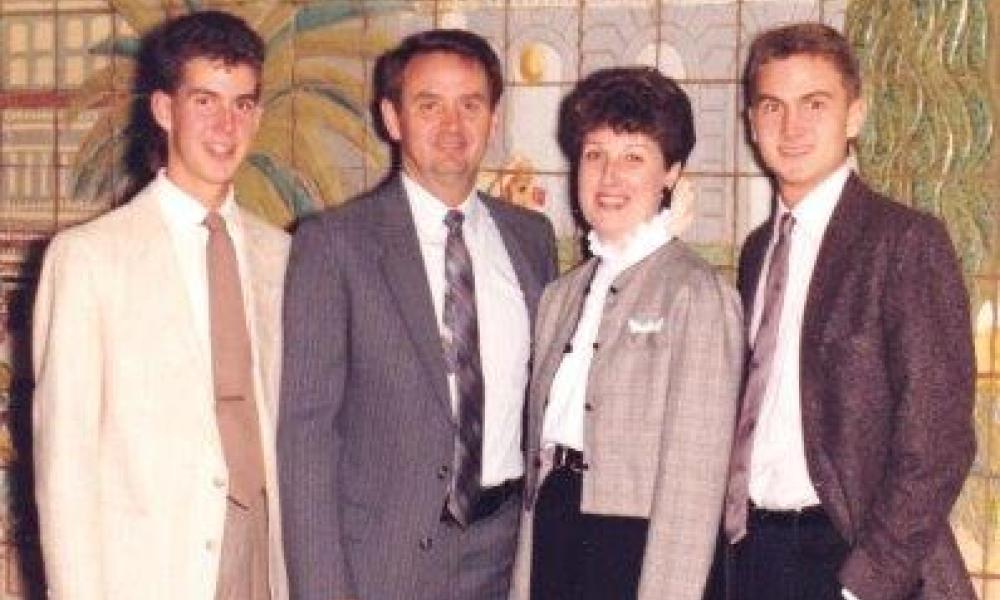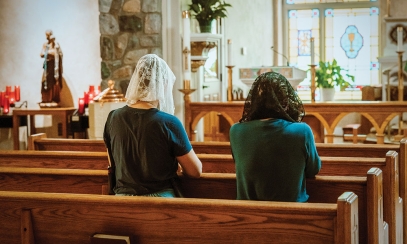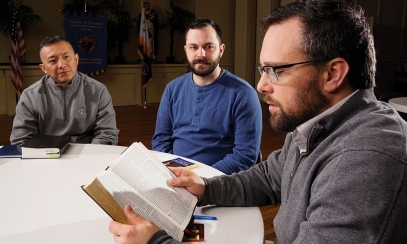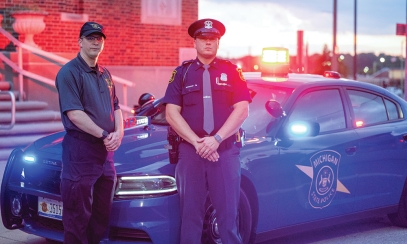
The Sixth Bishop of the Diocese of Joliet
Through the Eyes of Those Who Know Him
Through the Eyes of Those Who Know Him
Who knew Ronny Hicks would end up becoming a priest one day, let alone the bishop of the Diocese of Joliet?
Jean Hernandez, who lived in the same South Holland, IL, neighborhood as he did, certainly didn’t.
“Growing up, he was just one of the kids in the neighborhood,” said Hernandez, who has known Bishop Ronald Hicks (known as Ronny to his friends and family) for 49 years now, ever since he was four years old. “There is really nothing that I could recall that made me think that he was different. He was always a good kid, a good friend, fun to be around, and a good listener. But, looking back, there was nothing that made any of us think he was going to someday become a priest.”
All five of the Schultz sisters [Schultz is Jean Hernandez’s maiden name] view him as a “brother,” and their families continue to be close, as Jean’s children consider him to be like an uncle and his parents as grandparents.
On the other hand, Ronald Hicks’ family was not surprised when he became a priest, and neither were they surprised when he became a bishop.
According to his brother, Rick, Bishop Hicks went to Catholic schools, from grade school all the way through college, which included attending Quigley Preparatory Seminary South in Chicago, a high school for males interested in the priesthood.
Rick said his older brother kept an open mind and “kept staying with the program.”
His family also influenced Bishop Hicks in his faith life.
“Our Grandma Hicks was a very devout Catholic,” Rick said. “She had rosaries, crosses, and pictures of the risen Lord in almost every room of her house. She definitely passed that spirit down to our dad.”
Because both their parents were public school teachers, learning was also important to Bishop Hicks.
Attending Mass during the week and religion classes were part of Bishop Hicks’ Catholic school education, so faith was always a part of his life and an essential part of his educational curriculum — and in the daily lives of the family, Rick said.
“He continued asking questions and participating in everything that came with a Catholic school education,” Rick said. “I think, for many kids, going to Mass on Sundays is something they ‘have’ to do. It seemed like Ron always enjoyed and wanted to go to Mass.”
There were other things in life he enjoyed, Rick added, saying that, as a child, Bishop Hicks enjoyed school, strove for good grades, played the piano, and loved listening to music. He was a swimmer, which led to him becoming a lifeguard. And, he also had the ability to relate to others, especially adults.
“He was always a leader,” said Rick, a parishioner at St. Raphael Church in Naperville. “He was on student council in 8th grade. He was student body president as a senior in high school. He was the salutatorian. He likes to get up and lead.”
His family could see he was on “a trajectory,” Rick said.
“As a kid,” Rick said, “he always had an acute ability to speak and hold conversations with adults.”
The gift of speaking became apparent to others when Bishop Hicks was a teenager.
“At age 13,” Rick said, “he gave the eulogy at our great uncle’s funeral. Many family members say that was his first homily.”
One of Rick’s all-time favorite stories about his brother was when they were both very young. His brother saved him from a potentially life-threatening situation.
“When he was about six years old, and I was four, we were on vacation, and he went down the hotel pool slide into the water,” Rick recalled. “That looked fun. So, I climbed up and went right behind him; the only problem was he could swim, and I could not. I latched onto him and started to drag him under. He managed to keep both of us afloat until our dad pulled me out.”
Beyond Bishop Hicks always being a good brother, Rick appreciates the impact his brother has had on the lives of his family.
“My brother is just Uncle Ronny to my three boys,” Rick said. “He has a fantastic relationship with each of them. He has been a part of every major event in their lives – i.e., sports, vacations, graduations, college visits, birthdays, etc., but having him at their baptisms, first Communions, Confirmations, and soon-to-come weddings makes their faith connection that much stronger.”
He continued: “My wife, MaryBeth, loves that her brother-in-law is the bishop. Besides my parents, I think she is his biggest fan. As a teacher in the diocese, she has Ron into her classroom every year to meet the kids. She also loves to learn, so she is always asking him for the origin of ritual, custom or prayer.
“Finally, for me, I do recognize him to be the spiritual leader to hundreds of thousands of Catholics throughout Chicagoland, Latin America, and now the Joliet Diocese, but, as my big brother, I see him as friend. My faith as a Catholic is strong, but it is stronger because of him. We are all given different talents in life; he was given a gift by God to minister and lead. He uses those talents to their fullest every single day.”
Bishop Hicks’ path to the priesthood began after he graduated from Quigley Seminary South in 1985. He received his B.A. in Philosophy from Niles College of Loyola University Chicago in 1989 and his Master of Divinity degree in 1994 and his Doctor of Ministry degree in 2003, both from the University of St. Mary of the Lake in Mundelein.
When he became a seminarian at Mundelein in 1990, he met a fellow seminarian, Michael McGovern, who became a good friend and also later a bishop. Nobody knew it at the time, but the Mundelein Seminary Class of 1994 included four young men who all would later become shepherds of dioceses.
The men included McGovern, now the bishop of the Diocese of Belleville; Mark Bartosic, now an auxiliary bishop in the Archdiocese of Chicago; Robert Casey, now an auxiliary bishop in the Archdiocese of Chicago; and Bishop Hicks, now the bishop of the Diocese of Joliet.
One of Bishop Hicks’ jobs as a seminarian, Bishop McGovern recalls, was to deliver cans of soda pop to the seminarians in the various parts of buildings where they lived. The guys would place their orders — Pepsi, Coca-Cola or whatever brand they preferred — and the then-seminarian Hicks would deliver two cans to each of them every Wednesday.
“He was always cheerful, always very friendly,” Bishop McGovern said. “He was a real good presence in our class and in the seminary.”
Because they were formed at the same time and in the same classes, Bishop McGovern was asked what lessons they learned back then that would help Bishop Hicks in his role now.
Bishop McGovern remembers a Jesuit priest, Father Ross, one of their teachers, describing a situation where someone young had died, and Father Ross knew the family.
“Father Ross’ advice was you contact that family, and you go with the family to the funeral home when they have to see their deceased son for the first time,” Bishop McGovern said. “You make that extra effort because it's so difficult for them. .... And I think that advice is a very real example I've kept in my heart over the years that the time the family needs you is in that moment of seeing something so difficult. Part of our lives as priests is that people will want us to be with them in the most difficult moments of our lives.
“That's one of the things with Bishop Hicks, he's able to enter into difficult situations in a very graceful way because he loves Jesus, and he does love Jesus very much,” he said. “He wants to be present to people as Jesus wants to be, if that makes sense. He's able to enter and be with people in very difficult times where you find yourself saying, ‘I don't want to be anywhere else. This is where I want to be. I want to be with these people in this very difficult situation. ” - Bishop Michael McGovern
When then-Father Hicks was in El Salvador, serving a five-year term as regional director of Nuestros Pequeños Hermanos (NPH), which is Spanish for “Our Little Brothers and Sisters” — NPH is a home dedicated to caring for more than 3,400 orphaned and abandoned children in nine Latin American and Caribbean countries — he invited then-Father McGovern for a visit.
One of the highlights of the trip was when they visited the site where Archbishop Óscar Romero, who is now recognized as a saint, was assassinated in 1980 while celebrating Mass.
“I remember each of us praying in the chapel for an extended period of time, and then we went back outside, but that kind of quiet prayer in a very sacred prayer, that sums up Bishop Hicks,” Bishop McGovern.
Earlier this year, in late July, Bishop McGovern was installed as the ninth bishop of the Diocese of Belleville. So he has an idea of what being in charge of a diocese entails, and this is his advice to Bishop Hicks, from one bishop to another:
“The advice I would give is to let your staff know what you want to do in terms of your vision as a bishop of the local Church,” Bishop McGovern said. “I think it's important for people to know what you see as your priorities, but you always consult before you decide things: ‘ACBD’ — ‘always consult before deciding.’ We learned that from Father Kicanas [who later became the bishop of the Diocese of Tucson], who used to be the rector of the seminary. I remember him always saying ‘always consult before deciding.’ ”
Bishop McGovern added that it’s important for a bishop to “be out and about,” visiting the diocese, and, during this time of the pandemic, to learn how to be present in various ways to people throughout the diocese — for instance, through recording a YouTube video.
“As a new bishop, there's a lot of enthusiasm,” he said. “People want to meet you, but there can only be 100 people who come to a church to meet you rather than 500 people because of the pandemic. You have to still try to find ways to connect with the 400 people who couldn't come to the church physically that day, but you still want to try and reach them.”
After his ordination, Bishop Hicks served as an associate pastor at Our Lady of Mercy Parish in Chicago from 1994 to 1996 and then at St. Elizabeth Seton Parish in Orland Hills, IL, from 1996 to 1999.
From 1999 to 2005, Bishop Hicks lived and ministered at St. Joseph College Seminary as the dean of formation.
In July 2005, with permission from Cardinal Francis George, he moved from Chicago to El Salvador to begin a five-year term as regional director of NPH in Central America.
From 2010 to 2014, he served as the dean of formation at Mundelein Seminary. During that time, he also assisted with weekend Masses at St. Jerome Parish in Rogers Park in Chicago.
During those years of the priesthood, he was learning to grow as a leader and as a spiritual father, qualities that many have appreciated, including those who have gotten to know him over the years.
His brother’s son, Grant, is engaged to Tiffany Constable, who was raised as a Methodist, but went through the RCIA process at Ss. Peter and Paul Church in Naperville and was confirmed as a Catholic in 2019.
Bishop Hicks played an invaluable part in her faith journey, said Tiffany, who has known the bishop ever since she started dating Grant, about seven years ago.
“I was raised Methodist, and, up until I was four years old, I attended Sunday School every week,” she said. “It wasn’t until my parents’ divorce that church became less and less important in our household. It was tough for my mom at first to balance work and raising two children on her own.”
She labeled her relationship with God during back then as “almost nonexistent.” As a stubborn teenager, she said she deflected her mother’s attempts to get her to go back to church.
After meeting Grant in college, she and he attended a college ministry aimed at young adults, and then, a few months after meeting Grant, she met his Uncle Ronny.
“From my first conversation with him, I could feel [Bishop Hicks’] compassion towards sharing God’s love with others,” she said. “Through the many years of spending holidays, going to the lake, vacations, and having family Masses, I have been able to deepen my relationship with God as I have deepened my relationship with Uncle Ronny. Every time I’m with Uncle Ronny, he inadvertently makes me enthused about the Catholic faith and makes me want to be a better Christian.” - Tiffany Constable
One of his qualities about him that she appreciates is his ability to communicate the faith to others, she said.
“He is an incredible preacher,” Tiffany said. “He can connect his homilies with all ages of people by relating the Scriptures to current times and events. For example, while in El Salvador, Coco — [a computer-animated fantasy film produced by Pixar Animation Studios and released by Walt Disney Pictures that is the story of a 12-year-old boy who wants to prove his musical talent and dreams of reversing his family's ban on music] — had just come out, and he based his homily on that movie for all of the niño pequeños [little kids] to understand and delivered it in fluent Spanish.”
But what really stood out to her was the time, in 2017, when he invited some family members to celebrate Christmas in El Salvador with people from NPH, during the time he was serving a five-year term as regional director for NPH’s Central American region
“The moment we arrived,” Tiffany said, “all the children flocked to him. You could tell he was adored by all the big smiles on their faces. I remember specifically that our itinerary consisted of putting together a Zumba class one morning for all the kids. Uncle Ronny was not hesitant to participate at all; he jumped right in and tried his best to keep up with the group. My whole experience at NPH proved to me how much Uncle Ronny invests his time and heart into the things he is passionate about, which is our faith and his natural ability to connect with people through Christ.”
This natural way of connecting with others is another gift of his, she said.
“Ultimately, he considers everyone his family, whether people call him Uncle Ronny, Ronny, your excellency, Father, or Bishop Hicks,” she said. “All parishioners should be thrilled to have Uncle Ronny as their new bishop.”
Bishop Hicks’ path to becoming the sixth bishop in the Diocese of Joliet was first paved as he continued to get positions involving increasing levels of responsibility and leadership in the Archdiocese of Chicago, where he was appointed vicar general of the archdiocese by Cardinal Blase J. Cupich on Jan. 1, 2015. On Sept. 17, 2018, he was ordained an auxiliary bishop at Holy Name Cathedral in Chicago.
A lay leader at the archdiocese, Betsy Bohlen, has known Bishop Hicks since 2015, when he became vicar general and she became the archdiocese’s chief operating officer, where they worked as a team to support Cardinal Cupich in overseeing many of the strategic and day-to-day activities of the archdiocese.
She said she greatly values the friendship that formed in working with him, which had an added bonus in that they could spiritually reflect together.
“I also remember best times with Bishop Hicks and my children — confirming our daughter, playing with our young son when we were all in Rome together, sharing meals together,” she said.
The need to evangelize is an important one in the Church as there’s been an increase in the number of young people who don’t affiliate themselves with any religion, which is a serious issue for all religions. Bohlen said Bishop Hicks has often reflected on troubling faith trends among the younger generations.
“He knows we need to evangelize in new and different ways in today’s world,” she said. “He is committed to new ways of introducing people to a life of faith in Christ; reintroducing faith in Christ will likely become a core priority as bishop of Joliet.”
With the Diocese of Joliet having a large Hispanic population, the gifts he brings to the table — as Bohlen described it: “Bishops Hicks’ heart is with the Latino community in a special way, given his time working in El Salvador and other Latin American countries” — will serve him well as the next bishop of the diocese.
What will also serve him well is his love of Jesus.
Father Timothy F. Monahan is the vocation director for the Archdiocese of Chicago; he first met Bishop Hicks in 2012. Father Monahan has gotten to know him better in the past three years by reporting to him when the bishop was vicar general.
“We would meet for an hour each month to discuss how things were going in the Vocation Office,” Father Monahan said. “His listening, his encouragement, and the time he took to direct me in my ministry have been an invaluable aid for me and for those whom I serve.”
Father Monahan said that Bishop Hicks’ joy as a priest and his understanding of the importance of vocations will help him to have a positive influence on vocations in the Diocese of Joliet.
“I know Bishop Hicks understands how central vocations are to the work of the Church, and his own example of joy in his priesthood, and now episcopacy, will be very inviting to the people of the diocese,” Father Monahan said. “Vatican II makes it clear that the bishop must encourage and coordinate the vocation effort within the diocese, and I am confident Bishop Hicks will excel at that.” - Father Timothy F. Monahan
The joy that Bishop Hicks has, which comes from his love of Jesus, influences him in all that he does, and Father Monahan said that this combination of joy and love is going to have an impact on others.
“The stereotype some people have in their minds about priests and bishops is that we're lonely and unfulfilled in our lives,” Father Monahan said. “So, it is a sign of contradiction to see a priest or bishop who exudes joy and has healthy relationships with friends, family, and those whom he serves. Bishop Hicks' example should cause people to think: what is the reason for his joy? And as they get to know him and see him in action, they will understand that it's Jesus, and that joy can be theirs as well.”

